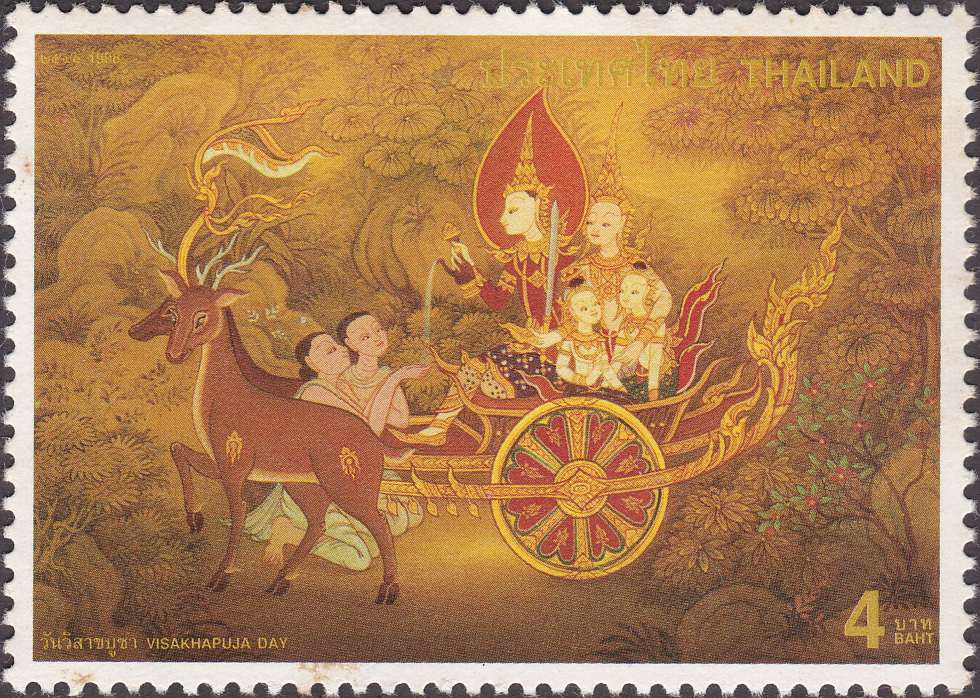| Visakha Bucha Day (1998) | |
Paintings with scenes from the stories about the last ten lives of the Buddha before his final birth as prince Siddhartha, and part of the Jatakas with the first design being from scenes the Wetsandorn Chadok The story takes place in India, the source of the original story. In brief, it is about a prince, Wetsandorn in Thai, Vessantara in Pali. Prince Vessantara is the son and heir of Sanjaya, King of the Sivis, and of Queen Phusati. The prince lives in the capital with his wife Maddi and their small son and daughter. His generosity is unique. He owns a magic white elephant that guarantees plentiful rain, important in an agrarian economy. But he gives it away to a brahmin emissary from another kingdom, which enrages the citizens. They compel King Sanjay to force Prince Vessantara and his wife, Maddi, who insists on accompanying him and their children, to go into exile. Before leaving, the prince gives away all of his possessions, making the "gift of the seven hundreds'. After a long journey on foot, they reach a spot in the mountains, where they settle down. Husband and wife make a vow to live in chastity. Shortly, a vile old brahmin (a member of India's highest caste) by the name of Jujaka, who is nagged at home by his young wife demanding that he find her servants, arrives to ask Vessantara for his two children. He gives them up in another act of detached generosity while his wife is off gathering food in the forest. In one of the most touching scenes in the narrative, Maddi swoons in grief upon learning of the loss of her children. (This is one of the reasons the story is so popular among women.) The next morning the king of the gods, Sakka (Indra) is afraid that Vessantara will next give away his wife and be left completely alone. So he comes in the disguise of a brahmin and asks for her, only to give her back immediately. Having received her back as a gift, Vessantara is no longer allowed by social convention to dispose of her. Subsequently, Jujaka and the children come to the court of King Sanjaya, where he ransoms his grandchildren and Jujaka, much to the delight of the listener, dies of gluttony. The king takes his retinue to the mountains and invites Vessantara and Maddi to return, and they do so in a grand procession. As in all traditional Indian stories, the story has a happy ending. The family is reunited, all of Prince Vessantara's possessions are returned to him, and they all live happily ever after |
|
| Issued Country | Thailand |
| Issued Year | 1998 |
| Category | Events Buddhist Festival |
| Type | Postage Stamps |
WORLD BUDDHIST STAMPS e.GALLERY
bringing the buddhist world at the comfort of your home
